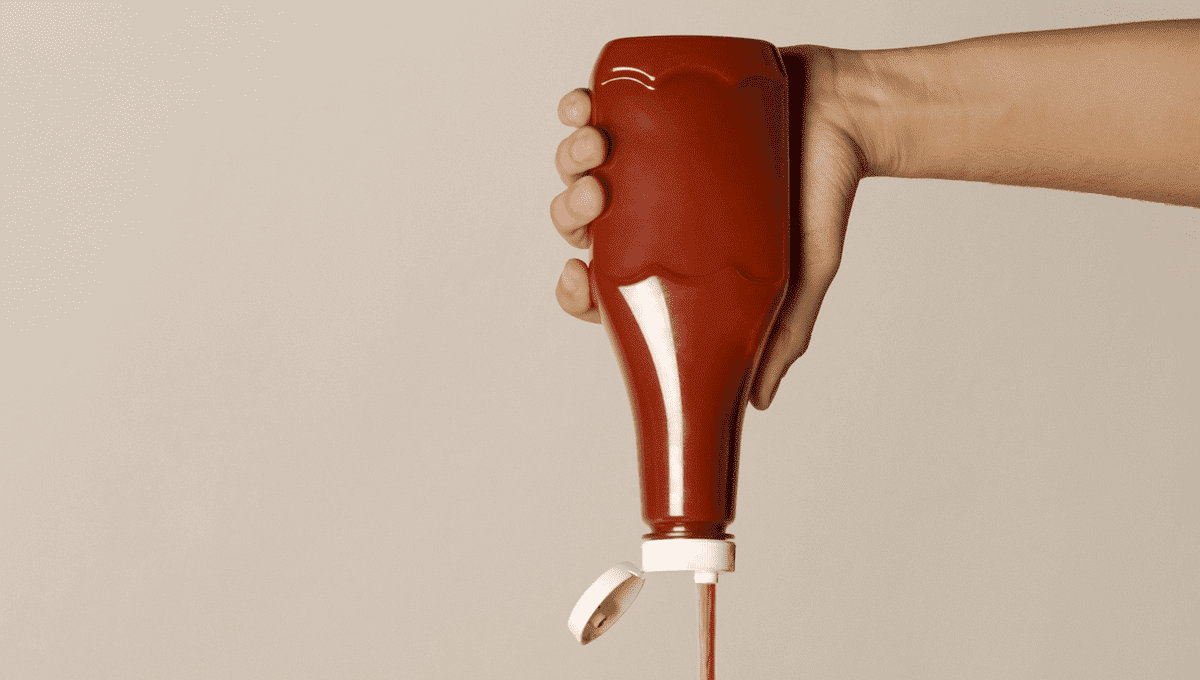
Scientists have solved the age-old mystery of why ketchup always seems to splatter when the bottle is running low. Fortunately, their work also shows some ways to prevent this dreaded faux pas from happening.
Two scientists from the University of Oxford presented their work – catchily titled “Dynamics of compressible displacement in a capillary tube” – at the American Physical Society’s Division of Fluid Dynamics conference last month.
Using mathematical modeling and a series of experiments, they showed that squeezing the bottle slowly and softly will significantly reduce the chances of rogue sauce splatters ruining your favorite top.
It’s all down to a complicated system of fluid dynamics, but it ultimately boils down to how resistance and force affect how the sauce flows out of the bottle.
When you squeeze a plastic sauce bottle, the air at the top of the bottle compresses like a spring, pushing out the liquid ahead of it. As this is occurring, the downward force is resisted by the drag of the ketchup against the walls of the bottle.
For the perfect pour, sauce slurpers will need to finely balance these two forces to determine how the bottle will empty. However, when the sauce is running low, this subtle balance becomes disrupted by the decreased drag from the sauce. With less drag, the air in the bottle is able to release all of its potential like a pent-up spring, causing the last bit of sauce to be expelled in a sudden burst.
“You need to compress the air to generate the driving force to move the liquid. As the liquid flows out, the resistance from viscosity decreases because there is less and less liquid to push. At the same time, the outflow of liquid makes more room for the air to expand into the tube, which decreases the driving force over time”, Professor Chris MacMinn, study author from the Department of Engineering Science at the University of Oxford, said in a statement.
“Our analysis reveals that the splattering of a ketchup bottle can come down to the finest of margins: squeezing even slightly too hard will produce a splatter rather than a steady stream of liquid,” Dr Callum Cuttle, also from the Department of Engineering Science at Oxford, said.
Along with squeezing softly, the researchers suggest that manufacturers should make bottle tops with broader nozzles to reduce the odds of splatter. Their work showed that the rubbery valves that are common on sauce bottle caps today are also a significant source of the problem.
“These valves make the spattering problem worse by forcing you to build up a certain amount of pressure before the sauce can even start to escape. These valves help to avoid leaks, but purely from a splattering perspective, removing these valves would make a lot of sense. For a quick remedy, when you get close to the end of a bottle (when a splatter is most likely), just take the cap off and squeeze the remaining liquid out of the broader neck. It’s common sense, but now there is a rigorous mathematical framework to back it up,” Cuttle added.
The paper, which is yet to be peer-viewed, was recently posted on the pre-print server arXiv.
Source Link: Why Ketchup Always Splatters Everywhere When The Bottle Is Low